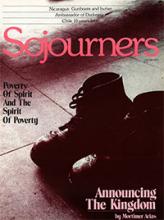This article is based on material from Mortimer Arias' book, Announcing the Reign of God: Evangelization and the Subversive Memory of Jesus. When this article appeared, the book was scheduled to be released by Fortress Press, Philadelphia, in February 1984.—The Editors
Read the Full Article

Already a subscriber? Login
